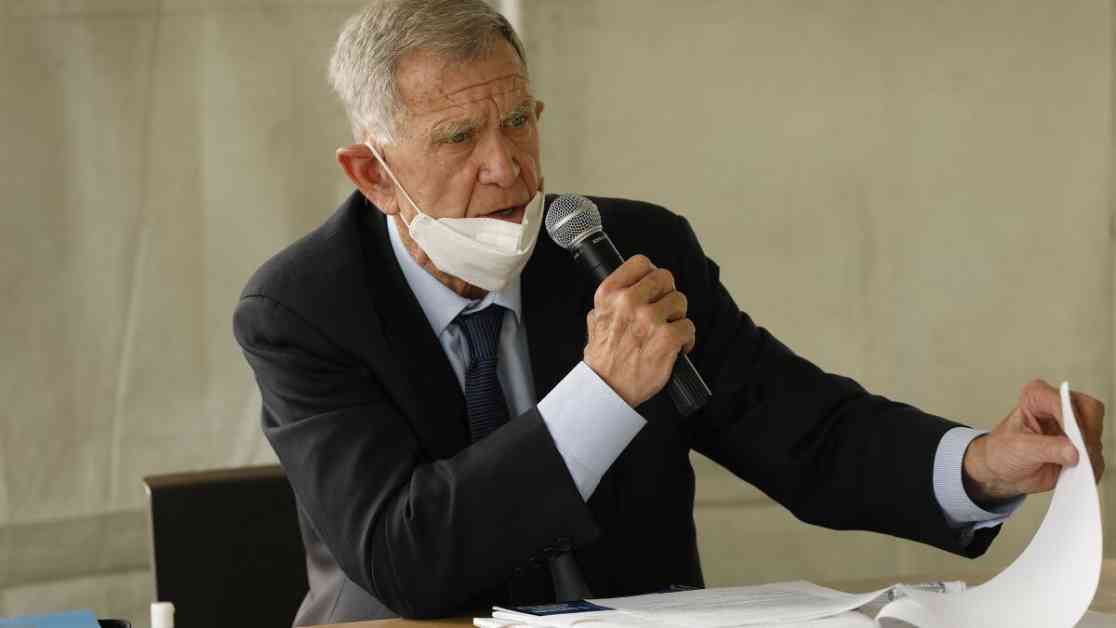In a recent courtroom spectacle, U.S. District Judge David O. Carter delivered a scathing critique of Los Angeles’ homeless services, likening the situation to the “Rocky Horror Picture Show.” With Mayor Karen Bass and County Board of Supervisors Chair Kathryn Barger in attendance, the judge issued a stern warning: fix the broken system by May or face dire consequences. Despite the anticipation of a dramatic remedy, Carter paused, opting to give the elected officials a chance to address the pressing issue.
The backdrop of this high-stakes drama is a five-year-old lawsuit brought by the L.A. Alliance for Human Rights, a nonprofit organization representing business owners, property owners, and residents. The lawsuit alleges that the city and county have failed to effectively tackle street homelessness, leading to a volatile situation on the streets of Los Angeles. To address this crisis, the city is required to create nearly 20,000 new beds for homeless individuals and remove 10,000 tents and vehicles from the streets, as stipulated in a settlement agreement.
However, the recent audit of the city’s spending on homeless services revealed a lack of accountability, with disjointed services and inadequate financial controls. Particularly, the Los Angeles Homeless Services Authority (LAHSA) came under scrutiny for its poor accounting procedures and lack of transparency. The audit highlighted the vulnerabilities in the city’s homelessness programs, leaving them susceptible to waste and fraud.
As the courtroom drama unfolded, the prospect of appointing a receiver to oversee the city’s homelessness programs was raised. This ultimate weapon, suggested by an attorney in the case, would entail a significant intervention in the city’s operations. Judge Carter, known for his no-nonsense approach, expressed reservations about the implications of such a move, questioning the extent of the court’s authority and the potential risks involved.
The discussion around the receiver’s role and the court’s intervention sparked a heated debate, with the judge seeking clarity on the receiver’s functions and the feasibility of such a drastic measure. The attorney representing the L.A. Alliance argued for an extraordinary remedy, citing the failure of the city and county to address the homelessness crisis effectively. The proposed receiver, likened to an “800-pound gorilla,” would have sweeping authority over the city’s budget for homelessness, raising concerns about the court overstepping its bounds.
Amidst the legal wrangling and courtroom theatrics, the underlying issue of homelessness in Los Angeles looms large. The city’s failure to address the crisis has prompted calls for structural changes and decisive action. The recent decision by the Board of Supervisors to reallocate funding from LAHSA to a new county department is seen as a step in the right direction by some, while others view it as a mere reshuffling of resources.
As the saga continues to unfold, the fate of Los Angeles’ homeless population hangs in the balance. With tensions running high and the specter of a receivership looming, the city and county officials are under immense pressure to find a lasting solution to the homelessness crisis. The courtroom showdown may have paused for now, but the urgency of the situation demands swift and decisive action to address the root causes of homelessness in Los Angeles.





















